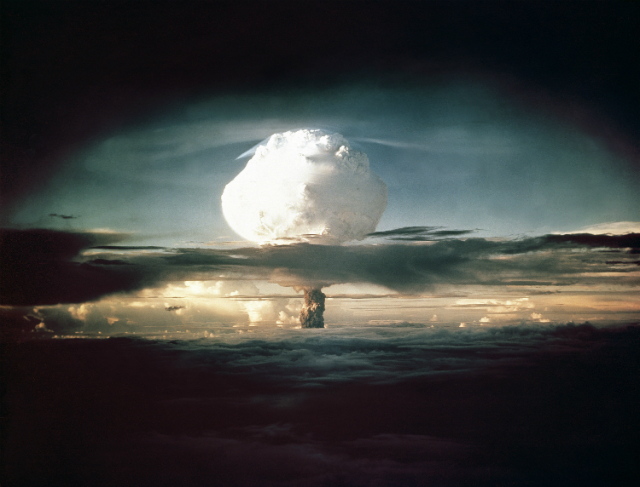
The first test of a full-scale thermonuclear device, 1952. (AP Photo/Los Alamos National Laboratory)
Growing up, Thanksgivings in Jennet Conant’s house were contentious. The Vietnam War was raging, and in Cambridge, MA, student protests were ubiquitous. But Conant’s family was especially combative. Her grandfather, James B. Conant, a former president of Harvard University, had both supervised the production of poison gas during World War I, and oversaw the development of the atomic bomb during World War II. And Conant’s father argued her grandfather wasn’t a scientist who had served his country, but a mass murderer.
Jennet Conant is the author of a new biography of her grandfather, Man of the Hour: James B. Conant, Warrior Scientist, as well other books about war, science, and the intersection of the two. She explains what happens when people use science to create weapons - and the fallout for the scientists themselves.
Three Takeaways
- James B. Conant was raised by a Quaker mother, and was bitterly opposed to World War I. But he was ultimately recruited to create poison gas for the American government (the Germans were far ahead on that front). According to Jennet Conant, he hated the work, but “in wartime, it’s a race for survival, and troubling moral issues get pushed aside when men are dying in large numbers.”
- During a test of the atomic bomb, Jennet Conant says that, for a split second, her grandfather thought that everything had gone wrong, that an immense thermonuclear explosion had happened and it was going to be the end of the world.
- Many of the scientists who had worked on the atomic bomb had assumed, since they created the weapon, that they might have some say in how it was used. This didn’t prove to be the case. “Many of the scientists never, never forgave themselves for their naivete in handing it over to the military early on and not realizing the consequences of that decision,” Conant says.
More reading
- Here’s a fascinating interview that Edward R. Murrow conducted with Robert Oppenheimer during the 1950’s.
- Speaking of nuclear war, The Washington Post writes that it’s unlikely we’ll have one with North Korea. Fingers crossed.
- Radiolab tells the story of Fritz Haber, who developed poison gas for Germany during World War I.

